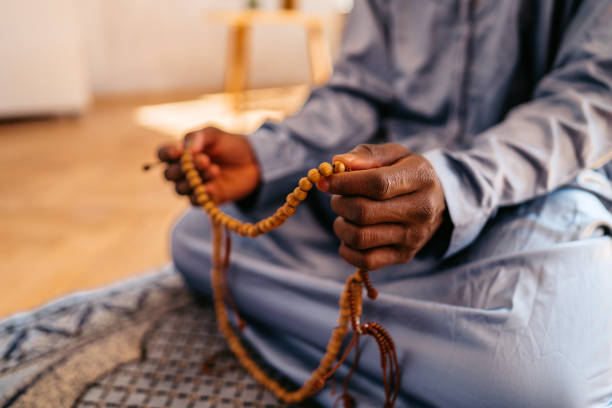By: Dr. Huseyn Zakaria
A Question from the Heart:
A question recently came to me that touches on a moment many of us have experienced:You are deep in your prayer, your heart focused on your Lord, when you hear the beloved name of the Prophet Muhammad ﷺ mentioned. A natural urge arises to honor him with the words “Sallallahu alaihi wa sallam.” But should you? Does this act of love validate or invalidate the sacred state of your prayer?
My initial, brief answer revealed the need for a deeper, more explicit explanation, one supported by the rich legacy of Islamic scholarship. It is my sincere hope that this clarification, drawn from the four Sunni schools of law, will serve as a lasting benefit for the Ummah worldwide. I ask Allah to accept this effort and make it a source of clarity and connection.
The Love, and the Law: An Introduction:
In Islam, sending blessings upon the Prophet Muhammad ﷺ is a sublime act of worship. It is an expression of our love for him and a fulfillment of a divine command. Allah says in the Qur’an:
“Indeed, Allah and His angels send blessings upon the Prophet. O you who believe, send blessings upon him and greet him with peace.” (Qur’an, 33:56)
This act is encouraged at all times. However, the prayer (salah) is a unique sanctuary a divinely legislated conversation with Allah where every word and action is prescribed. It is within this sacred space that our love for the Prophet must harmonize with our utter submission to the form of worship he taught us.
The Four Schools of Law: A Unified Voice of Reverence:
While the schools have nuanced differences on when precisely sending blessings is required within the prayer’s structure, they speak with remarkable unity on the core question at hand. Let us explore their reasoning accordingly.
1. The Sanctity of Prayer: A Shared Foundation:
All four schools; Hanafi, Maliki, Shafi’i and Hanbali have based their rulings on a fundamental principle: intentional, external speech which is unrelated to the prescribed rites of adhkār invalidates it.
Prayer is a state of devoted focus (khushu’), where the worshipper stands in humility before Allah. The Prophet ﷺ himself clarified its nature when he said:
“Verily, this prayer is not suitable for the speech of people. It is only for the remembrance of Allah, recitation of the Qur’an, and glorification.” (Sahih Muslim, 537)
This hadith establishes a clear boundary. The prayer has its own unique language that of Qur’anic recitation, permissible known adhkār, and supplication, and introducing the ordinary speech of the world, even for a noble cause, breaks its sacred spell.
2. The Verdict of the Schools: Silence is the Highest Respect:
If you hear the Prophet’s name during your prayers, the ruling across all four schools is consistent:
You should not utter the blessings aloud. Instead, the correct and respectful response is to send the blessings upon him silently in your heart, without moving your lips or making a sound.
Here is a glimpse into the scholarly evidence from each school:
a. The Hanafi School: Texts like al-Hidayah and Radd al-Muhtar are explicit: any external speech be it a response to a greeting, a word of instruction, or saying “Sallallahu alaihi wa sallam” invalidates the prayer. The remembrance should remain internal. (al-Hidayah, 1/83; Radd al-Muhtar, 1/471)
b. The Maliki School: In al-Mudawwanah al-Kubra, Imam Malik strictly forbade introducing any verbal speech during prayer, as it contradicts its very essence. The Maliki position emphasizes preserving the prayer’s solemn nature above all else. (al-Mudawwanah, 1/183)
c. The Shafi’i School: Imam al-Nawawi states in al-Majmu’ that speaking during prayer intentionally, for any reason worldly or religious nullifies it. Therefore, the salutations must be confined to the heart. (al-Majmu’, 3/422)
d. The Hanbali School: Ibn Qudamah affirms in al-Mughni that deliberate speech, even to glorify the Prophet outside the designated parts of the prayer, breaks the prayer. The Hanbalis stress total concentration and adherence to the prescribed form. (al-Mughni, 2/109)
A Note on the Prescribed Blessings Within Prayer
It is crucial to distinguish this scenario from the blessings that are an integral part of the prayer itself. The schools agree that sending blessings upon the Prophet ﷺ is a core component of the final sitting (tashahhud), with the Hanafis and Malikis considering it a highly recommended Sunnah, and the Shafi’is and Hanbalis considering it an obligation (wajib). This, however, is a fixed pillar of the prayer’s script, not a voluntary interjection.
Conclusion: Where the Heart Speaks
The wisdom behind this unified ruling is profound. It teaches us about reverence and discipline. Our prayer is a direct, intimate conversation with our Creator, conducted exactly as He and His Messenger ﷺ taught us. To alter this divine script, even with an expression of love for the Prophet himself, is to step outside the sanctified boundaries of that conversation.
So, the next time you are in prayer and that beloved name reaches your ears, know what to do. Let your heart swell with love. Let your inner being resonate with blessings and peace upon him. But let your tongue remain still, devoted solely to the words of your prayer.
In this silent, heartfelt salutation, you fulfill both the rights of Allah by perfecting your worship and the rights of His Messenger by honoring him in the manner most pleasing to Allah.
And Allah knows best.






Leave a Reply